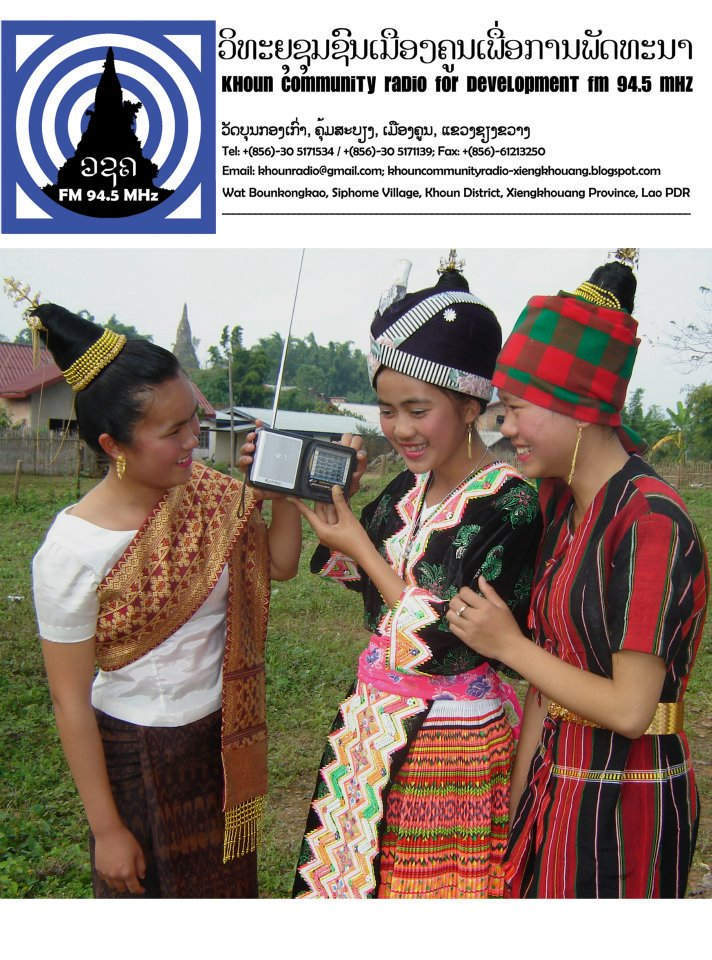Airtime is an awesome piece of software, built by Sourcefabric, which lets radio stations take control of programming via the web. It includes a simple scheduling calendar, smart playlists and automated playout. To mark World Radio Day 2013, FrontlineSMS:Radio's Amy O'Donnell wrote a post for Sourcefabric's blog on how this scheduling tool can be complemented by channels including SMS to help to make radio interactive. A snippet of the post is republished below, or you can read the original post in full here.
Celebrating the Power of Radio All Over the World
By Amy O'Donnell, FrontlineSMS:Radio Project Manager.

Excitement is rising as we gear up to celebrate UNESCO’s inaugural World Radio Day next Monday 13th February. A wide spectrum of activities is being organized around the globe to raise awareness about the power of radio and to celebrate over 100 years of broadcast. For our part, FrontlineSMS:Radio is delighted to be co-organizing an event at London’s School of Oriental and African Studies (UK) with SOAS Radio, Lifeline Energy and Empowerhouse.
I am really looking forward to joining experts in the field, including Guy Berger, the Director for Freedom of Expression and Media Development at UNESCO, on the London-based panel entitled “New Perspectives on Traditional Radio.” It’s great to see the diversity of practitioners, academics and tools providers who have already signed up to join us in discussions about the importance of radio.
One theme of the event will be the way that different technologies can serve to change the way in which radio is used as a platform for engagement. For example, the innovative use of different tools is now having a revolutionary impact on the way that audiences are able to interact with programming. As I found out when I recently visited a radio station in the UK, input from social media like Google+, Twitter or Facebook allows audiences to shape the direction of programming and presenters often read out comments on-air.
But, I can’t help but ask: how are people who are offline able to engage in discussions on the radio which affect them? 2011 ended with almost 6 billion active mobile subscriptions (source: ITU, 2011 Report), and through my work at FrontlineSMS:Radio, I’ve seen that SMS is increasingly being used by radio stations across the world to facilitate two-way communication with listeners. In a "Twitter like" way - radio combined with text messaging can be a platform for community discussion which can lead to tangible changes in people's lives. This might be challenging water cartels, identifying diseases affecting livestock or crowd-sourcing opinion on service delivery.
FrontlineSMS:Radio is a customized version of FrontlineSMS which has been designed with audience participation in mind. It assists radio stations to engage more effectively with their listeners via SMS and represent their views over the airwaves. Meanwhile, the software empowers stations to gather information about their audience to enable them to be more responsive, stimulate dialogue and produce locally relevant content.
The timing of World Radio Day couldn’t be more perfect as the trial of FrontlineSMS:Radio enters an exciting phase. One station in Kenya has received over 16,000 messages into the new software in just 3 months! In the last few weeks we have opened the trial to a wider group of stations and we have started to receive their feedback and ideas to further improve the software. If you’re able to join us in London, we’ll be demonstrating a sneak peek of FrontlineSMS:Radio.
Meanwhile, many other innovative advancements are affecting the way that radio programming is produced and listened to. For example, Sourcefabric’s Airtime is free, open source radio automation software which lets radio DJs take total control of their station via the Internet. On the listeners’ end, Lifeline Energy provides solar and wind-up prime radios and Lifeplayer MP3s which are designed for large group listening. It is innovations such as these which conversations on 13th February will serve to highlight.
There seems to be a buzz of activity this week, as the finishing touches are made to different international events on the theme of radio- you can check them out on Lifeline Energy’s map which really gives the feel of a global movement. You’ll notice that discussions are happening from Dhaka to Canberra, Chipata to Lahore, Barcelona to Fiji... the list goes on. It’s also a double celebration as Airtime celebrate their first year anniversary and are holding meet ups in Berlin, Prague, Minsk, Guatemala City, Warsaw and Toronto. Let us know if you’re organizing something which you want to be added to the map! We wish everyone involved in World Radio Day 2012 the best and hope this year marks the start of bigger and better events to come!
For more on the London event, see http://worldradiodaylondon.eventbrite.com/ and the speakers' biographies. The event will be streamed from the SOAS website.
Follow us on Twitter @worldradioday or use the hashtag #worldradioday
Find us on Facebook http://www.facebook.com/WorldRadioDay
If you’re interested in getting more involved in organizing events in the future or staying up to date with content and activities from the day, join our Google group.




